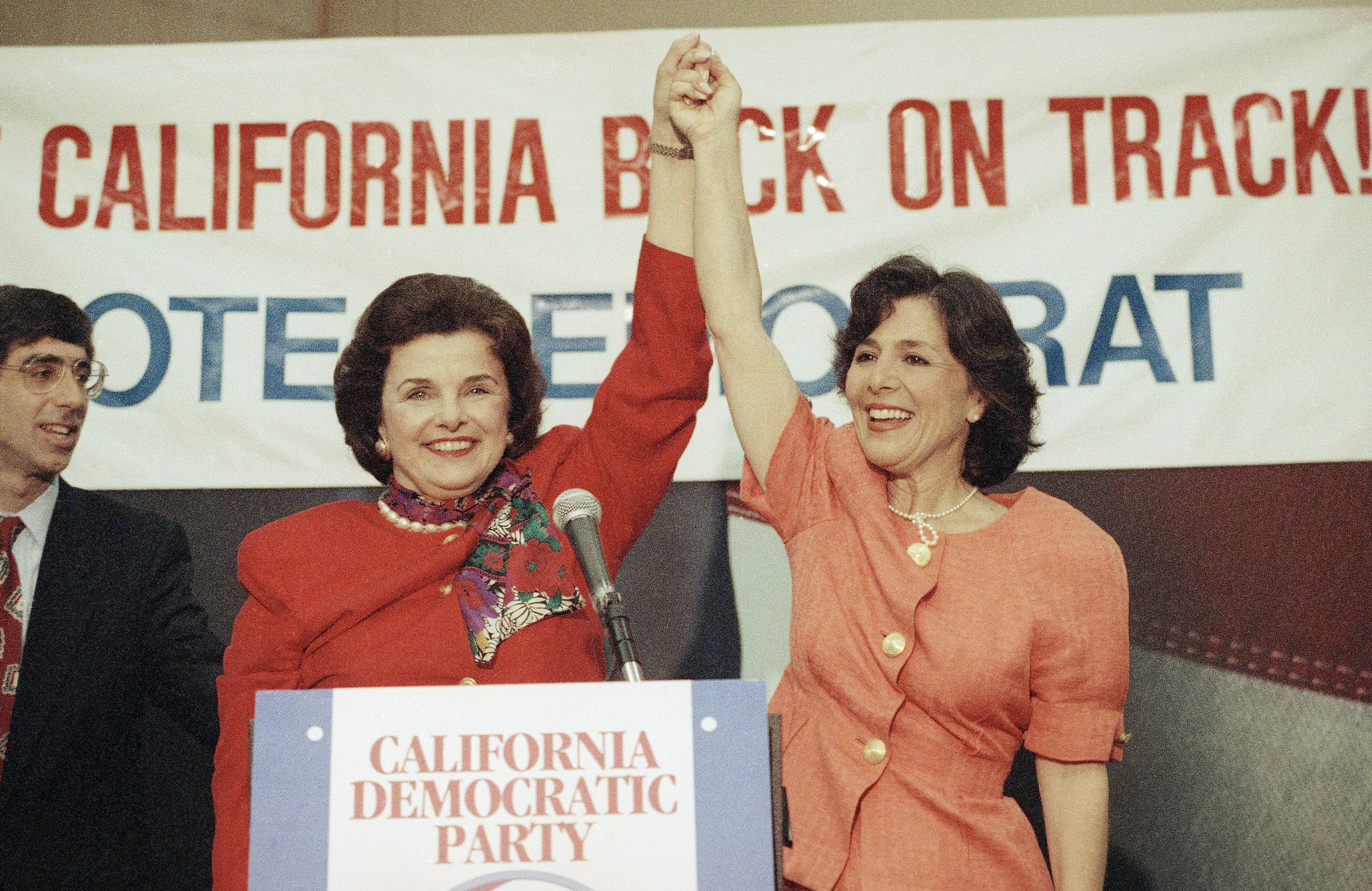Barbara Boxer warns progressives to back off on Dianne Feinstein lest they regret it
California politics
Mark Z. BarabakJune 16, 2023
Barbara Boxer was once one of the most liberal members of the US Senate, a favorite of progressives
,
who much preferred her to California’s other Democratic senator, the more sedate and centrist Dianne Feinstein.
So it’s noteworthy to hear Boxer’s advice for those who most fervently wish Feinstein,
who is engaged in the subject of
well-documented illnesses, would immediately accompany her in her post-Senate retirement.
“I think the far left of my party, which is running for this, should smell the roses,” Boxer said.
As in, get real.
She sees no guarantee that Republicans would allow another Democrat to replace 89-year-old Feinstein on the Senate Judiciary Committee. In fact, Boxer is convinced they wouldn’t.
“They’ve already shown their hand,” she said, by refusing to have a temporary replacement filled while Feinstein recovers from shingles and its serious side effects. “I think it speaks volumes about their lack of humanity.”
Without tie
–
By breaking the Democratic vote on the committee, Republicans could freeze President Biden’s judicial candidates for the remainder of his term, exactly what Feinstein’s critics presumably want to avoid.
So it would be best, Boxer suggested, that Feinstein stay until her target retirement date in January 2025, remaining ready for critical votes when Democrats controlling the Senate by a narrow 51-49 majority margin need her.
Not ideal. But then there’s nothing to Feinstein’s situation.
In November 1992, Boxer and Feinstein made history by simultaneously winning California’s two U.S. Senate seats. They were called “Thelma and Louise” after the street-robbing movie bandits; while it was somewhat sexist, it also reflected the slightly cross-border nature of the women’s side-by-side candidates.
Speaking via Zoom this week from her home outside of Palm Springs, Boxer produced several mementos from that campaign, including a cartoon of the couple as their movie counterparts, gleefully speeding down the freeway in an open-top convertible.
In that first Senate campaign together
Feinstein “grabbed my hand and never let go. I wouldn’t have won without her,” Boxer said of it
that first Senate campaign
with her unofficial running mate, who
had
ran a strong race for governor in 1990 after serving as mayor of San Francisco for nearly a decade. “She was so popular. And I was like
,
‘Barbara who?'”
She laughed.

Boxer chose not to seek a fourth term and left the Senate in January 2017 at age 76. She recalled that Feinstein was somewhat irritated
. :
“She said, ‘Why would you do that? You’re at your best.'”
Two summers ago, Boxer subtly suggested
to Feinstein
what it might be time for
here Feinstein
to get out of the Senate as well. There had been another flurry of reports of Feinstein’s declining physical and mental abilities.
“Only you can decide this,” Boxer said in an interview at the time, as if addressing her former colleague. “But from my perspective, I want you to know that I’ve had very productive years outside the Senate doing good things. So put that into the equation.
Boxer said s
he changed his mind about Feinstein’s departure
Boxer said,
after Senate Republicans blocked
allow
a placeholder
fill in for her
in the Justice Committee. “They forced her back,” Boxer said, even though they claim to “love and respect the California Democrat.”
Had a Republican been incapacitated, Boxer suggested, Feinstein, always a proponent of order, would have “led the fight for their reinstatement” without losing a seat on the committee. “I know,” she said.
In a recent column, veteran Washington Post congressional correspondent Paul Kane wrote,
contrasted compared
the “public disgrace” Feinstein has faced with the admiration surrounding several male senators who suffered physical infirmities while clinging to their Senate seats.
Boxers served alongside several of them. But unlike those who see a double
–
default
the treatment of
fine stone
‘s treatment
, Boxer doesn’t believe sexism is at work. “I think it’s a function of two things,” she said,
point at
the close balance of power in the Judiciary Committee and Feinstein’s”
here
Republican colleagues don’t help her.”
And there’s something else, Boxer noted: the proliferation of social media and technology that puts a camera and tape recorder in the pocket of virtually every citizen. Feinstein’s vulnerability and flaws can be minutely cataloged and widely disseminated, often in ways that older legislators were previously spared.
But perhaps the biggest difference, Boxer suggested, is a change in the political climate, which in just a few years since she left the Senate has become more hostile and personally brutal. “It’s tough,” she said of Feinstein’s unfortunate situation. “It is heavy.”
The two are not particularly close
,
but they’ve kept in touch since Boxer left Washington, occasionally talking and exchanging catch-up emails.
“This is political,” Boxer continued, “no doubt. No one can be aware of that anymore.’ Boxer was never even one during her
24 years decades
in Washington to shy away from a partisan brawl.
“But kindness…” and her voice trailed off for a moment. “Kindness. The Republicans could have spared her all this annoyance.”
Instead, we witness
last,
Sorry
load
chapter in Feinstein’s otherwise stellar career.
Fernando Dowling is an author and political journalist who writes for 24 News Globe. He has a deep understanding of the political landscape and a passion for analyzing the latest political trends and news.



